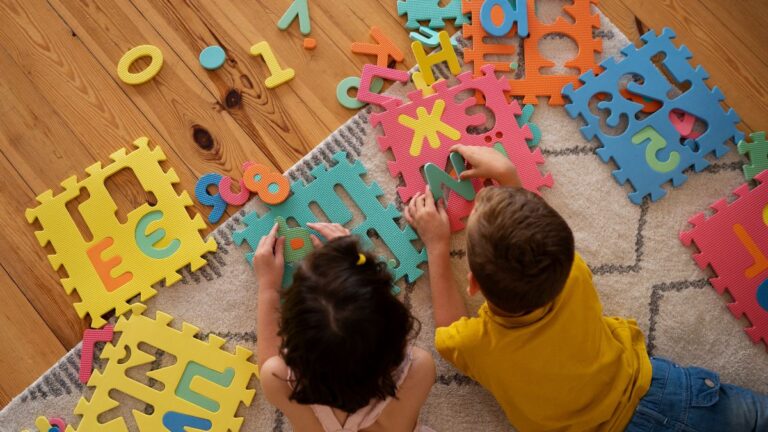Using games and puzzles to support language development is an effective way to turn learning into a positive, low-pressure experience. Puzzle play transforms language learning into an engaging, interactive process. Fill-in puzzles, for example, encourage both kids and adults to recall word meanings and spelling patterns. Websites like Pennydellpuzzles.com offer a range of these puzzles to suit different skill levels. Rather than relying on memorization, puzzles make spelling and word recognition a natural, rewarding part of play. Each solved puzzle provides a sense of achievement and solidifies language concepts through hands-on experience. This active learning approach helps reinforce vocabulary and comprehension in a way that feels more like fun than formal study.
Building Spelling Skills Through Play
Turning spelling practice into a game keeps learners motivated. With puzzles, children and adults interact with letters dynamically, noticing patterns and common pitfalls like silent letters or tricky double consonants. Fill-ins require careful placement, reinforcing correct spelling without the stress of traditional drills. This repeated, playful exposure to words helps solidify correct spelling and boosts confidence for readers of all ages.
Creative Puzzle Types for Language Growth
Variety is key in language learning. Fill-in puzzles develop spatial reasoning and attention to word patterns. Word searches improve rapid recognition and spelling accuracy. Crossword puzzles expand vocabulary while reinforcing spelling and context. Activities like word ladders further build skills by having learners change one letter at a time, helping with both phonics and spelling.
Making Puzzles a Classroom or Family Tradition
Establishing regular puzzle time, whether in class or at home, builds a culture of fun around language learning. Teachers may start the day with quick fill-ins, and families often enjoy weekend game nights. Collaborative puzzle-solving encourages discussion, cooperation, and gently competitive fun, turning language development into a collective adventure.
Research on Puzzles and Literacy
Evidence supports puzzles as powerful tools for literacy. According to a feature in Edutopia, regular interaction with word games improves vocabulary, reading fluency, and spelling. Literacy specialists and nonprofit organizations also emphasize how playful activities foster phonemic awareness and flexible thinking, critical for developing reading and writing skills.
Tips for Maximizing Language Learning with Puzzles
Mixing up puzzle types helps sustain interest and keeps learners engaged over time. Encouraging collaboration and family participation can deepen learning by creating opportunities for shared discovery and discussion. Talking through challenging words and celebrating small milestones builds motivation and reinforces new concepts. Keeping the atmosphere relaxed and fun promotes curiosity and confidence, making puzzle-solving a rewarding part of any educational routine.
Getting Started with Language Puzzles
Parents, teachers, and learners can easily add puzzles to their routines using books, printouts, or digital resources. Online platforms provide endless options for word and fill-in puzzles across skill levels. Puzzles transform spelling and language study into a dynamic, confidence-building journey—one that helps every learner enjoy exploring the world of words.

